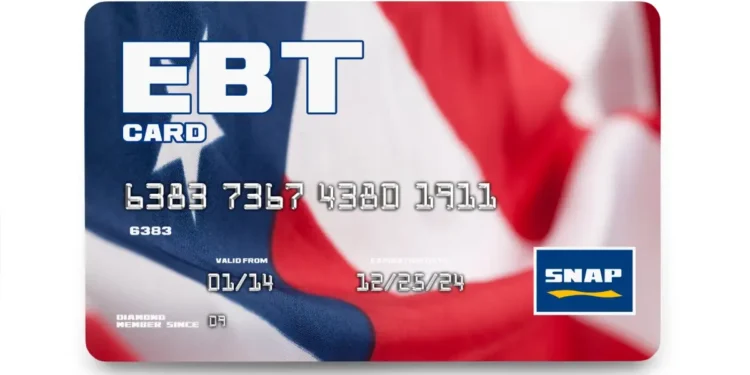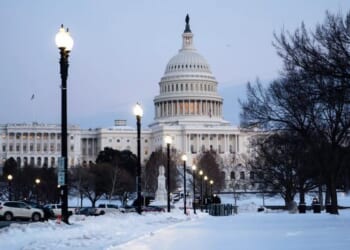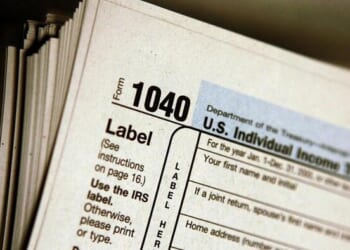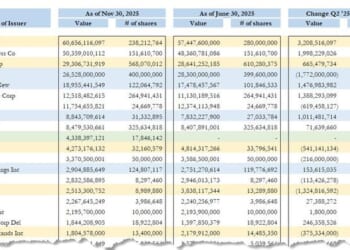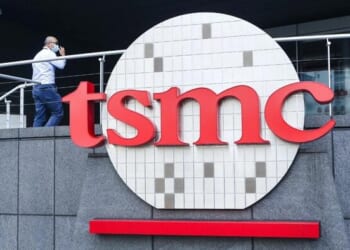The Schumer Shutdown is officially the longest federal government shutdown in history. Democrats continue to dig in their heels with their demands that Republicans and the President reinstate federal benefits for illegals and other misuses of taxpayer dollars. The recent Democrat wins in Tuesday’s elections in various states have given them a second wind. Federal workers, military personnel, and air traffic controllers are either furloughed or working without pay. On top of this mess, the funding for the SNAP program ran out at the beginning of this month — a program that Democrats created and have supported for decades. SNAP, which is not without corruption, has now become a political pawn or as House Minority Whip Katherine Clark puts it, “leverage” in the shutdown fight, at the expense of millions of Americans.
The federal food assistance program has grown massively over the last 86 years. The Great Depression kicked off the first iteration of food stamps in 1939, in which recipients literally received paper stamps that could be exchanged for free or discounted food. In 1961, a new pilot program was launched which was eventually codified and made permanent in the Food Stamp Act of 1964, signed by then-President Lyndon B. Johnson. The initial cost of the program was $75 million for the first year. This quickly increased to $200 million by the third year with over half a million people enrolling in the program. Many states were hesitant and even delayed the implementation of the food stamp program because they saw the law as a top-down approach to force states to shoulder the burden of yet another federal entitlement program. The costs alone are not the only problems with the program. Phyllis Schlafly listed many of the consequences of creating a welfare state, such as disincentivizing marriage, giving men an easy way out of fatherhood, and providing illegal immigrants with federally funded benefits.
In 2008, the food stamp program was renamed to the Supplemental Nutrition Assistance Program (SNAP) and was modernized to allow benefits to be received and spent using an Electronic Benefits Transfer (EBT) card. Under the Obama and Biden administrations, several policies were enacted that expanded the program to more enrollees and increased the amount of benefits. By 2024, the cost of the SNAP program nearly reached $100 billion. It pays for 41.7 million enrollees, of which 61% are adults. California has the most SNAP recipients, with 5.3 million residents enrolled in the program. New Mexico is the most dependent on the program with 21% of its residents receiving benefits.
This year, in the One, Big, Beautiful Bill, Republicans made changes to SNAP to cut costs by eliminating fraud and tightening rules regarding enrollment. Beginning in October 2027, states will have to take accountability for their fraud. If a state has an error rate (over or underpayments) above 6%, they will receive less federal SNAP reimbursements. Work requirements for able-bodied individuals ages 19-64 have also been implemented. These recipients must look either have a job, look for work, be involved in job training or volunteer 80 hours per month to receive SNAP benefits.
Department of Health and Human Services Secretary Robert F. Kennedy, Jr. is attempting to clean up the program as well. The Food Stamp Act specifically stated that “all practicable efforts shall be made in the administration of the food stamp program to insure (sic) that participants use their increased food purchasing power to obtain those staple foods most needed in their diets…” However, in practice, there are few restrictions on the types of food that can be purchased. A study conducted in 2016 by the United States Department of Agriculture (USDA) found that SNAP recipients spent more of their benefits on soft drinks than non-SNAP households making up 5% of all SNAP purchases. Earlier this year, the Food and Drug Administration issued waivers to 6 states allowing them to restrict certain purchases through the SNAP program. They cut out items like soft drinks, candy, fruit and vegetable drinks containing less than half natural juices, and certain confectionary products. Making small changes such as these not only cuts costs but improves the health of those receiving the benefits.
The lapse of SNAP benefits for the first time in history is resulting in lots of conflicting information. Currently, the program has $6 billion in contingency funds to cover extra expenses. However, the USDA recently clarified that these funds could only “supplement regular monthly benefits when amounts have been appropriated for, but are insufficient to cover, benefits.” Because the program has not been authorized, nor have funds been appropriated, the federal government cannot draw from the contingency fund. Two federal judges have weighed in, ordering the Trump administration to release the contingency funds. While Judge John McConnell from Rhode Island ordered the full $6 billion be used, Judge Indira Talwani from Massachusetts suggested that extra monies from imports be used to supplement the remaining amount. The Trump administration announced shortly after that SNAP will be partially funded for now, so as not to deplete the federal government’s emergency funds.
In the meantime, churches across the nation are stepping up to fill the void. Throughout the Bible, God calls on his people to take care of each other especially the poor and widowed. Handing over this duty to the federal government goes against what the Bible instructs us to do. After the COVID-19 pandemic, studies found that nearly half of church congregations engage in food distribution in their areas. Over 63% of food banks are identified as religious-based. These places provide more than a handout; they provide a community to share each other’s burdens and acknowledge the dignity and worth of each individual. Clearly, a government check alone cannot provide this kind of support and love that is so fundamental to our humanity.
As we prepare for the Thanksgiving holiday, we encourage you to volunteer, donate, and support those in need in your communities. Federal workers such as the military, border patrol, air traffic controllers and TSA agents are all working during the Schumer Shutdown but their paychecks are being withheld. In addition, many low-income Americans may see a reduction in their food benefits despite the partial release of funds. To find organizations and churches assisting those in need in your area, look to your county or state government websites. Eagle Forum will continue to put pressure on the Senate to pass the “clean CR” and re-open the government without giving in to the extreme political agenda of the Democrats.

